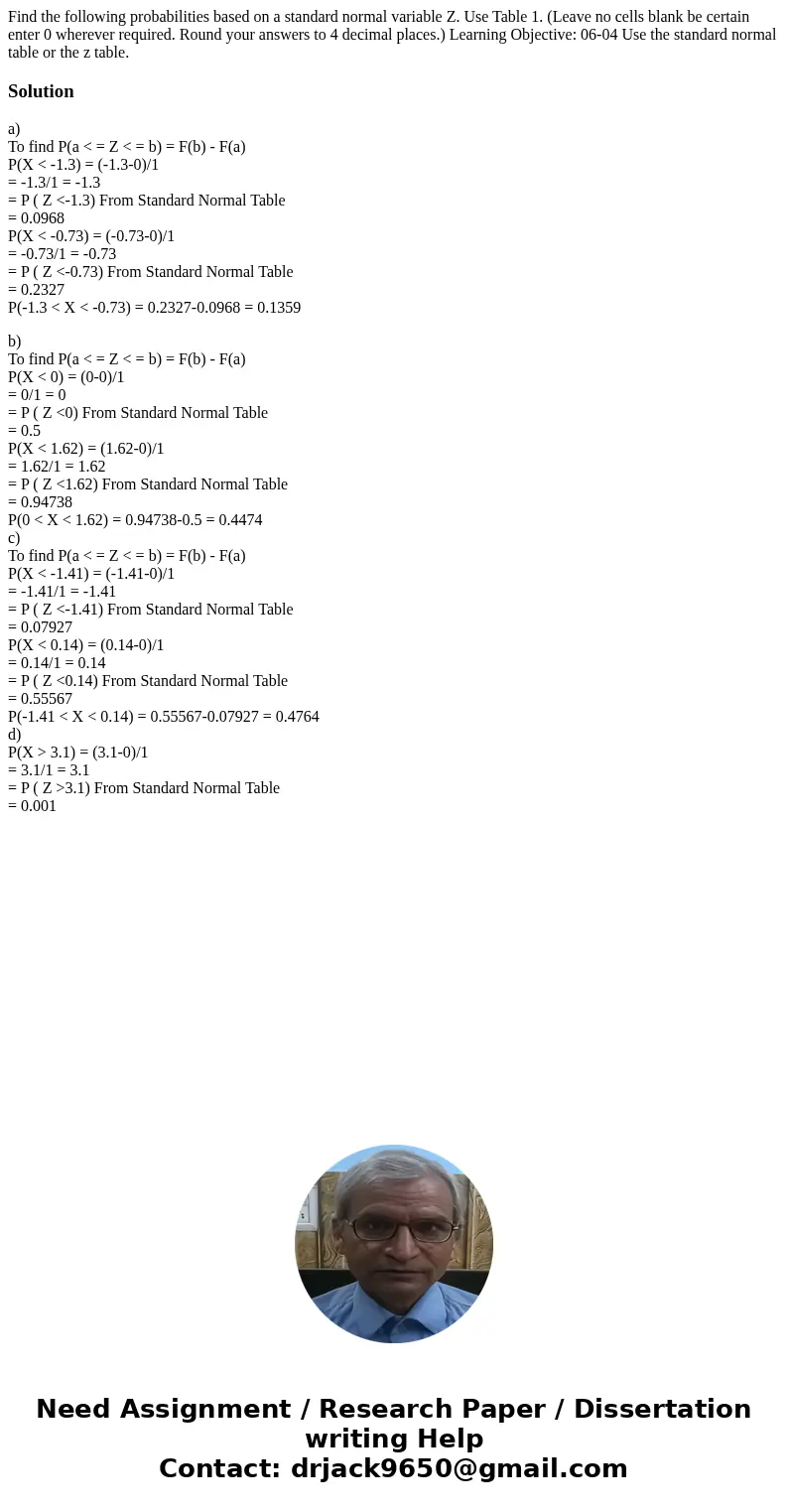Find the following probabilities based on a standard normal
Solution
a)
To find P(a < = Z < = b) = F(b) - F(a)
P(X < -1.3) = (-1.3-0)/1
= -1.3/1 = -1.3
= P ( Z <-1.3) From Standard Normal Table
= 0.0968
P(X < -0.73) = (-0.73-0)/1
= -0.73/1 = -0.73
= P ( Z <-0.73) From Standard Normal Table
= 0.2327
P(-1.3 < X < -0.73) = 0.2327-0.0968 = 0.1359
b)
To find P(a < = Z < = b) = F(b) - F(a)
P(X < 0) = (0-0)/1
= 0/1 = 0
= P ( Z <0) From Standard Normal Table
= 0.5
P(X < 1.62) = (1.62-0)/1
= 1.62/1 = 1.62
= P ( Z <1.62) From Standard Normal Table
= 0.94738
P(0 < X < 1.62) = 0.94738-0.5 = 0.4474
c)
To find P(a < = Z < = b) = F(b) - F(a)
P(X < -1.41) = (-1.41-0)/1
= -1.41/1 = -1.41
= P ( Z <-1.41) From Standard Normal Table
= 0.07927
P(X < 0.14) = (0.14-0)/1
= 0.14/1 = 0.14
= P ( Z <0.14) From Standard Normal Table
= 0.55567
P(-1.41 < X < 0.14) = 0.55567-0.07927 = 0.4764
d)
P(X > 3.1) = (3.1-0)/1
= 3.1/1 = 3.1
= P ( Z >3.1) From Standard Normal Table
= 0.001

 Homework Sourse
Homework Sourse